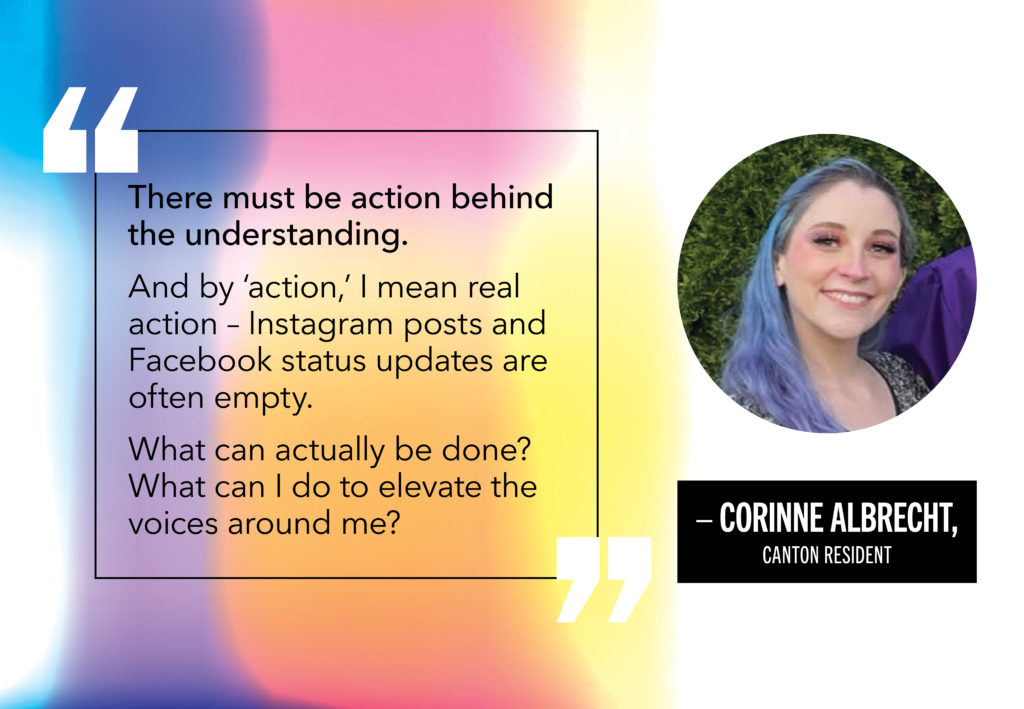Equity Challenge Reflections: Corrine Albrecht
Published on June 16, 2021 in Diversity, Equity and Inclusion

When Corinne Albrecht came of age, she began to see the world differently.
Leaving behind her stringent religious upbringing, she familiarized herself with terms like bias, privilege and intersectionality, and prioritized equality.
The 27-year-old was excited to join the 21-Day Equity Challenge alongside her colleagues at OneMagnify, a challenge sponsor, to broaden her understanding of the inequities marginalized populations face.
“I was excited to engage with more material, and have the opportunity to reflect and consider where I have been, where I am and where I’m going,” Corinne said.
The first half of the challenge included deeper dives into education, the racial wealth gap and other familiar topics.
On Day 13, everything changed for Corinne.
The daily email revealed the ongoing impact of environmental racism — a topic she had never considered.
“I was blown away,” she said. She watched the videos intently and forwarded the emails to her friend group, committed to learning more and finding a way to help. And she’s not stopping there.
“I’m knowledgeable on some issues, yet I know that ‘knowledge’ and ‘some’ isn’t good enough,” Corinne said. “There must be practice and effort combined with the learning, relearning and unlearning. There must be action behind the understanding. And by action, I mean real action – Instagram posts, Facebook status updates and other social media efforts are often empty at the end of the day. What can actually be done? What can I literally do to elevate the voices around me?”
She says that the work is never complete, “especially for someone who inherently benefits from the societal structure of today. I’m aware of my privilege, yet I know awareness is not enough.”
She makes it a point to consider her privilege often so that she doesn’t lose sight of the work that needs to be done.
“I think about the fact that I can drive past a police car and not feel anxiety and that Band-Aids generally match my skin color,” she said. “Those may seem like small things. At the same time, they’re important to acknowledge.”